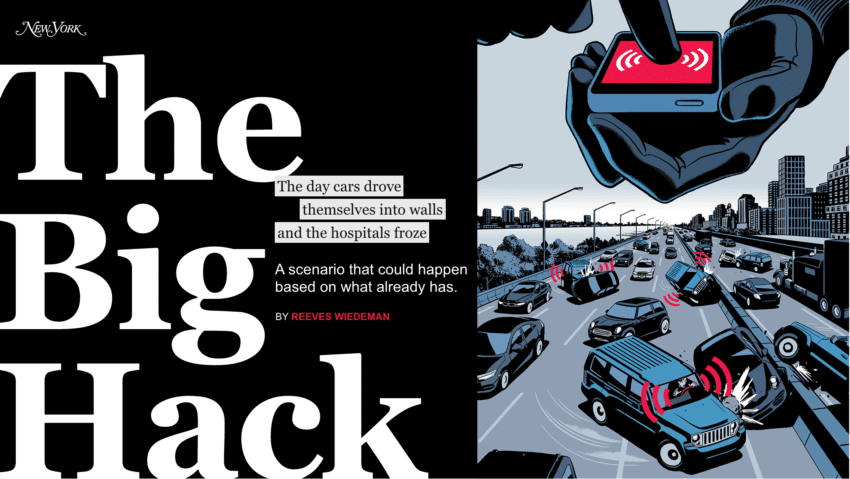
In-brief: A New York Magazine article imagines a massive, online attack on New York City in 2017. The scary thing: most of what it imagines has already happened.
New York Magazine has a (fictional) description of a wholesale attack on New York City that imagines a multi-vector attack on critical infrastructure, including transportation, public safety and health networks.
It’s a fascinating thought exercise made all the more interesting for in-line links to a range of actual reports of isolated incidents similar – if not identical – to those used in the fictional attack on Gotham. Among them: Chris Valasek and Charlie Miller’s wireless attack on a Jeep Cherokee, Chris Roberts’ claim to have hacked the avionics systems aboard a domestic flight, and ransomware infections at hospitals across the U.S.
From the article:
European black-hat hackers who launched the attack against New York had spent much of the previous decade breaking into American corporate networks — credit-card companies, hospitals, big-box retailers — mostly for profit, and sometimes just because they could. When those attacks became routine, the group moved into more politically inclined hacks, both against and on behalf of various governments, rigging elections and fomenting dissent.
In the summer of 2016, the hackers received an anonymous offer of $100 million to perform a cyber attack that would debilitate a major American city. The group’s members weren’t much interested in death and destruction per se, so they declined their funder’s request for a “Cyber 9/11.” But to self-identified anarchists with a reflexively nihilistic will to power, the proposition had some appeal. Causing disruption was something that had been on their minds recently, as their conversations veered toward the problems with global capitalism, the rise of technocentrism, bitcoin, and the hubris required to nominate a man like Donald Trump. Their animus got more personal when American authorities arrested a well-respected white-hat hacker who had broken into an insulin pump in order to show the dangers of connecting devices without proper security. The black hats were on the opposite end of the ideological spectrum but had more empathy for their fellow hacker than they did for the American people, who, they felt, deserved a comeuppance — or at least a very loud “Fuck you.” The plan was to show how much of modern life in a city like New York could be disrupted by purely digital means. The hackers would get paid, but they also hoped their attack would dent America’s complacent faith in order and in the technology and political authority that undergirded it. As a bonus, their services would be in even greater demand.
Source: Envisioning the Hack That Could Take Down NYC — NYMag
